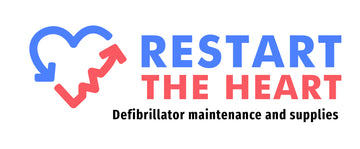Heart Health: The Beginner's Guide to Heart Attack First Aid
Heart attacks are a significant concern in Australia because they are among the leading causes of death in the country. A heart attack happens when the blood supply to the heart muscle is restricted, causing damage to the heart. It can be life-threatening and can strike at the most unexpected times. In these cases, first aid is crucial.
Heart attack first aid is essential to reduce the damage caused to the heart muscle. It involves providing immediate care to the person until medical assistance arrives. Quick action can save a person's life; everyone should know about first aid for heart attacks. For this reason, we will guide you in this article.
What Causes a Heart Attack?
A heart attack occurs when the blood supply to the heart is blocked. The blockage can be caused by plaque buildup in the arteries, blood clots, or a spasm in the coronary artery. The risk factors for heart attack include smoking, high blood pressure, high cholesterol, obesity, diabetes, and a family history of heart disease.
Additionally, heart attacks are more common in older adults and men. However, anyone can experience a heart attack, and knowing the signs and symptoms is important to provide first aid quickly.
Symptoms of a Heart Attack
The symptoms of a heart attack can vary from person to person, and not everyone experiences the "classic" symptoms. The most common symptoms include:
- Chest pain or discomfort
- Shortness of breath
- Excessive sweating
- Nausea or vomiting
- Lightheadedness or dizziness
- Pain or discomfort in the arms, neck, jaw, shoulder, or back.
It's worth noting that some of these symptoms are also commonly associated with other conditions, such as anxiety or indigestion, and may not necessarily indicate a heart attack. However, it is important to seek medical attention immediately if you experience any of these symptoms, especially if they are accompanied by chest pain or pressure.
Administering First Aid to Someone Experiencing a Heart Attack
If you suspect that someone is having a heart attack, here are the steps to follow:
- Have the person sit down to rest and keep calm.
- Loosen any tight clothing they are wearing.
- Ask about the person's heart condition and whether they use medication to relieve chest pain, and then help them take it. If the pain doesn't subside after a brief rest or within 3 minutes of taking the medication, contact emergency medical assistance.
- Without delay, dial 000 or your area's emergency number and give details about the individual's condition and whereabouts.
- If the individual is not breathing, has no pulse, or is unresponsive, initiate CPR.
- If a baby or young child is experiencing a heart attack, perform CPR for one minute and immediately call 00 or the local emergency hotline for assistance.
Things You Must Not Do
When providing first aid to someone experiencing a heart attack, it is essential to avoid doing the following:
- Stay with the person and seek assistance, avoiding leaving them alone.
- Do not let the person refuse to acknowledge their symptoms and persuade you against seeking emergency assistance.
- Do not wait to see if the symptoms go away.
- Do not administer any medication orally to an individual unless a doctor has recommended it for their heart condition.
These measures are necessary because heart attacks can be life-threatening and require immediate medical attention. Delaying treatment or administering medication without proper medical guidance can worsen the condition or cause harmful side effects. If you can, you must take quick and appropriate action in case of a suspected heart attack to increase the chances of a positive outcome.
Ways to Prevent Heart Attacks
The risk of heart attacks is high, but there are ways to prevent them. These include:
- Eat a healthy diet: Eating a diet that is low in saturated and trans fats, cholesterol, and sodium can help to reduce your risk of heart attacks.
- Exercise regularly: Regular exercise helps to keep your heart healthy and reduces the risk of heart attacks. Aim for at least 30 minutes of moderate exercise most days of the week.
- Limit alcohol intake: Drinking too much alcohol can increase the risk of heart attacks. Limiting alcohol intake to moderate levels can help to reduce this risk.
- Quit smoking: Smoking is a major risk factor for heart attacks. Quitting smoking can significantly reduce your risk.
- Control your blood pressure: High blood pressure is a major risk factor for heart attacks. Regular monitoring and management of blood pressure can reduce this risk.
Conclusion
Heart attacks are bound to happen anytime, so you must help someone experiencing it if you see them. Administering first aid is hard, but we must be prepared to act quickly and confidently. Of course, you must also take care of yourself because prevention is always better than cure.
Restart the Heart has what you need if you are looking for defibrillator supplies! We offer various selections, such as batteries, pads, and other first aid supplies, for affordable prices. Visit our website today and take your pick!

